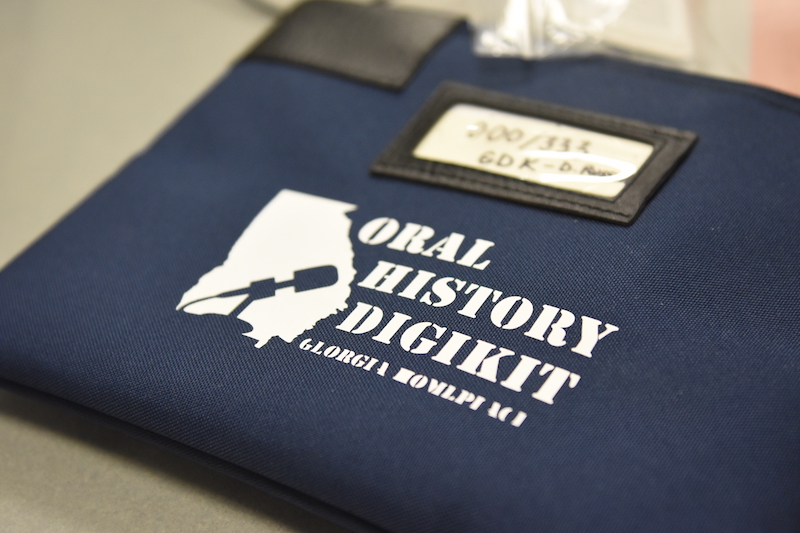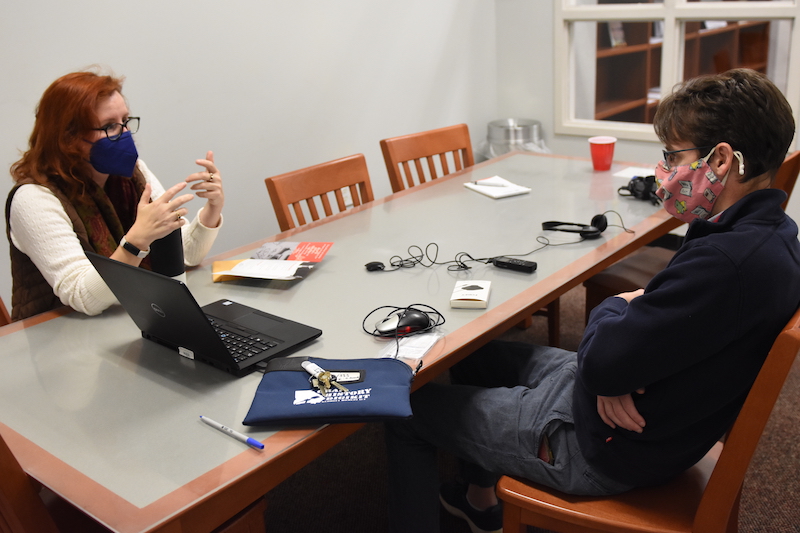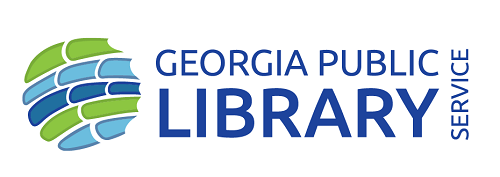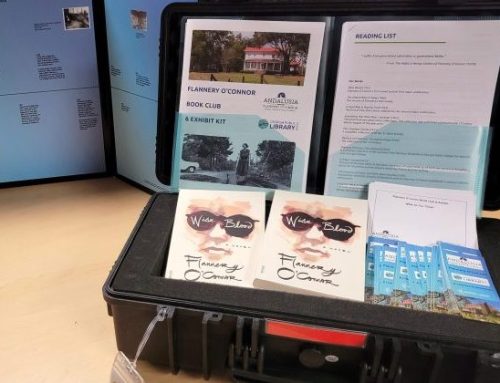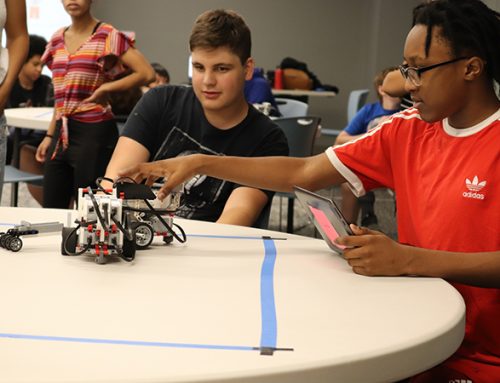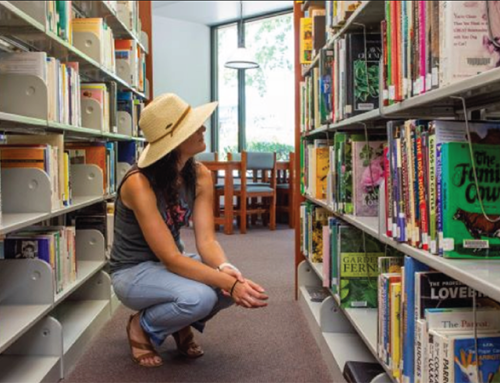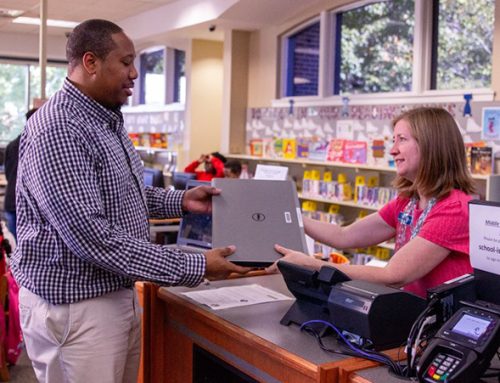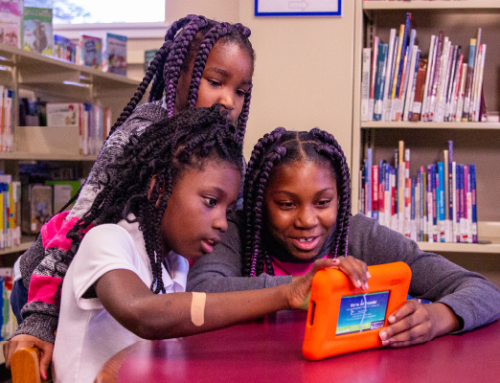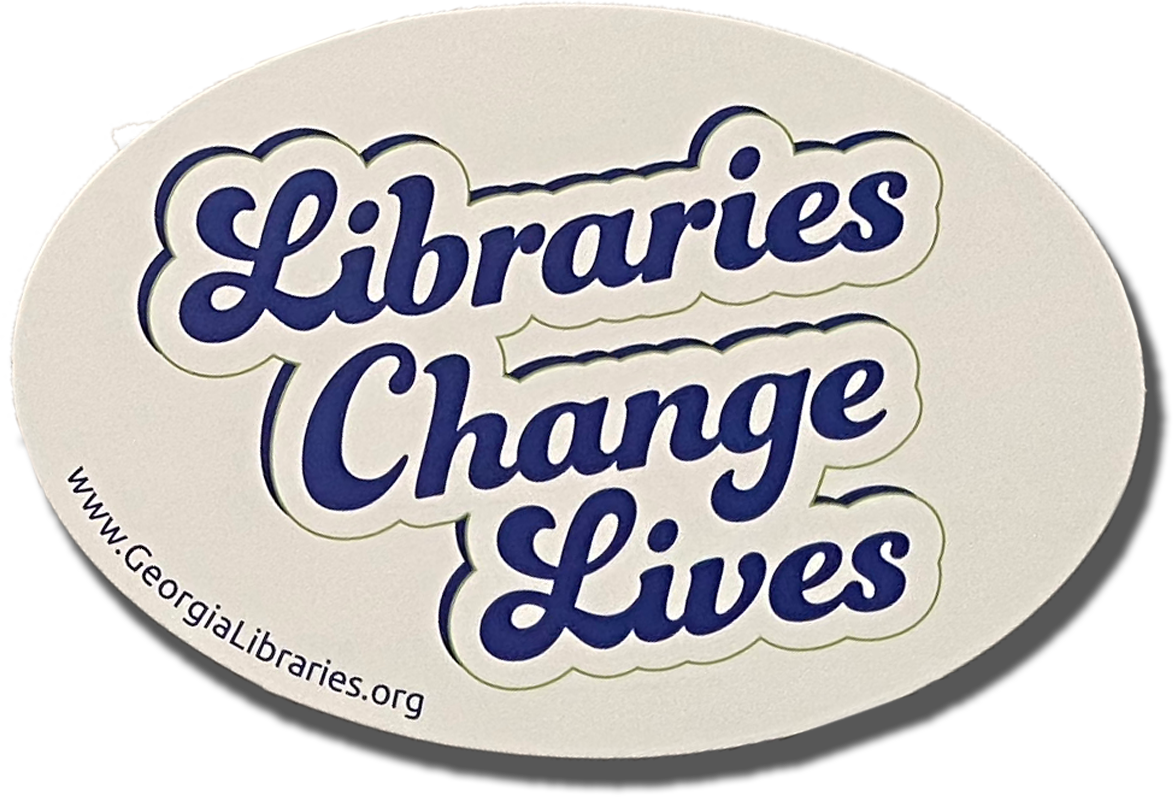
Technology Loaner Kits allow libraries to introduce patrons to the latest technology, tools, and gadgets.
by Deborah Hakes
Daniel Zeiger packs up a Makey Makey, which transforms everyday objects into computer interfaces, next to a 3D pen and Chromebook in a well-padded shipping box, to send to a public library.
“We know that many libraries can’t afford to purchase the latest technology, tools, and gadgets for their patrons, and that’s one reason we offer these tech loaner kits,” said Zeiger, IT director at Georgia Public Library Service (GPLS).
“A library staff member can request one for staff and patron training, programming, and to promote the library. This service helps our library staff and community members become more familiar with emerging technology. The kits also fill a financial gap for libraries, and they are just plain fun!”
As the state library administrative agency, GPLS distributes state and federal funding to 407 public libraries in every county in Georgia. GPLS tech loaner kits were made possible due to funds from the Institute for Museum and Library Services.
GPLS also looks for ways to empower libraries to provide equitable services to their community, no matter where a library is located. Kits that libraries can check out are one way to do it.
“We saw that libraries were struggling to keep up with the rapid pace of technology because of the cost, lack of knowledge of what was available, and understanding what would work best for their community,” said Zeiger. “The kits are an opportunity to curate a collection of emerging technologies, enabling library staff to familiarize themselves with cutting edge technology and evaluate new programming to see what has the highest impact in their area.”
In addition to tech loaner kits, Georgia Public Library Service currently offers tech kits to libraries that focus on other areas like 3D printing, virtual reality, digitization, and even a retro kit that includes a turntable, tape converter, and VHS adapter. Plans are in the works for additional ones to include telescope, 3D scanning, drone, and live streaming kits.
“Many libraries can’t afford to purchase the latest technology, tools, and gadgets for their patrons, and that’s one reason we offer these tech loaner kits. A library staff member can request one for training, programming, and to promote the library.
The kits also fill a financial gap for libraries, and they are just plain fun!”
– Daniel Zeiger,
Georgia Public Library Service
“We used the 3D printers mostly for programming but also let members of the public print from it,” said Jessica Wilson, assistant director of Roddenbery Memorial Library, a single branch library system serving Grady County in south Georgia. She checked out a tech loaner kit for her library last fall from GPLS. “We’ve had patrons print specialty toys and small knickknacks, but also logo prototypes for their businesses.”
The tech kits must be reserved by a public library staff member, and libraries use them for a variety of purposes, such as programming for patrons or partnering with the community to make tech available for public use at the library.
Patrons can share their interest in using the technology with their librarian, who could reserve a kit from GPLS.
As an example, a librarian in West Georgia Regional Library System reserved a virtual reality kit for a patron, who produced a program for local teens using the equipment in a library conference room.
Librarian David Russell from the DeKalb Public Library recently checked out an oral history DigiKit from GPLS for three months. These kits contain various digitization technologies and digital recording devices. Each device comes with a charger, and each kit is housed in a ruggedized case.
“I reserved an oral history DigiKit so our patrons can record their stories digitally,” said Russell. “I prompt them with sample questions like, ‘What is a moment of kindness that has stuck with you?’”
He noticed that patrons would come into the library with general genealogy questions and express to him that they wished they had asked family members those questions while they were still alive.
“I believe in the power of storytelling,” said Russell. “I think it’s important for families to record this history for future generations.”
The recording device is tiny and connects to a laptop. With one click, it starts recording to a flash drive. Patrons can leave the library with the recording on a memory card that they brought from home or have the file emailed to them.
“Public libraries are in the business of removing barriers of access to knowledge and information, and one of the many ways they do that is through digitization,” said Angela Stanley, director of archival services and digital initiatives at Georgia Public Library Service.
GPLS introduced the oral history DigiKits in 2020 following the success of scanner DigiKits, which had been in circulation for two years. These kits are designed to support libraries in digitizing local historical materials, from photographs to microfilm to audio interviews. Libraries have used them to digitize African American funeral programs for preservation, host public scan day events, and document the pandemic’s impact on their local communities.
The DigiKits are popular; in the last five years, the 11 DigiKits have been in use by libraries for a combined total of 5,186 days – or more than 14 years.
Not all of the kits GPLS offers are technology related.
This spring, Georgia Public Library Service plans to launch Story Stroll kits for libraries to check out. These kits will feature a children’s picture book, with pages printed across 16-20 signs, that libraries can set up outdoors or in partnership with a local park. Story Strolls encourage families to read and be active together.
“We exist to serve Georgia public libraries and their communities,” said State Librarian Julie Walker. “We are proud to offer these resources to libraries, and we hope many more communities will reap the benefits.”
DigiKits make it easy for libraries to help patrons record stories of their family’s history.

